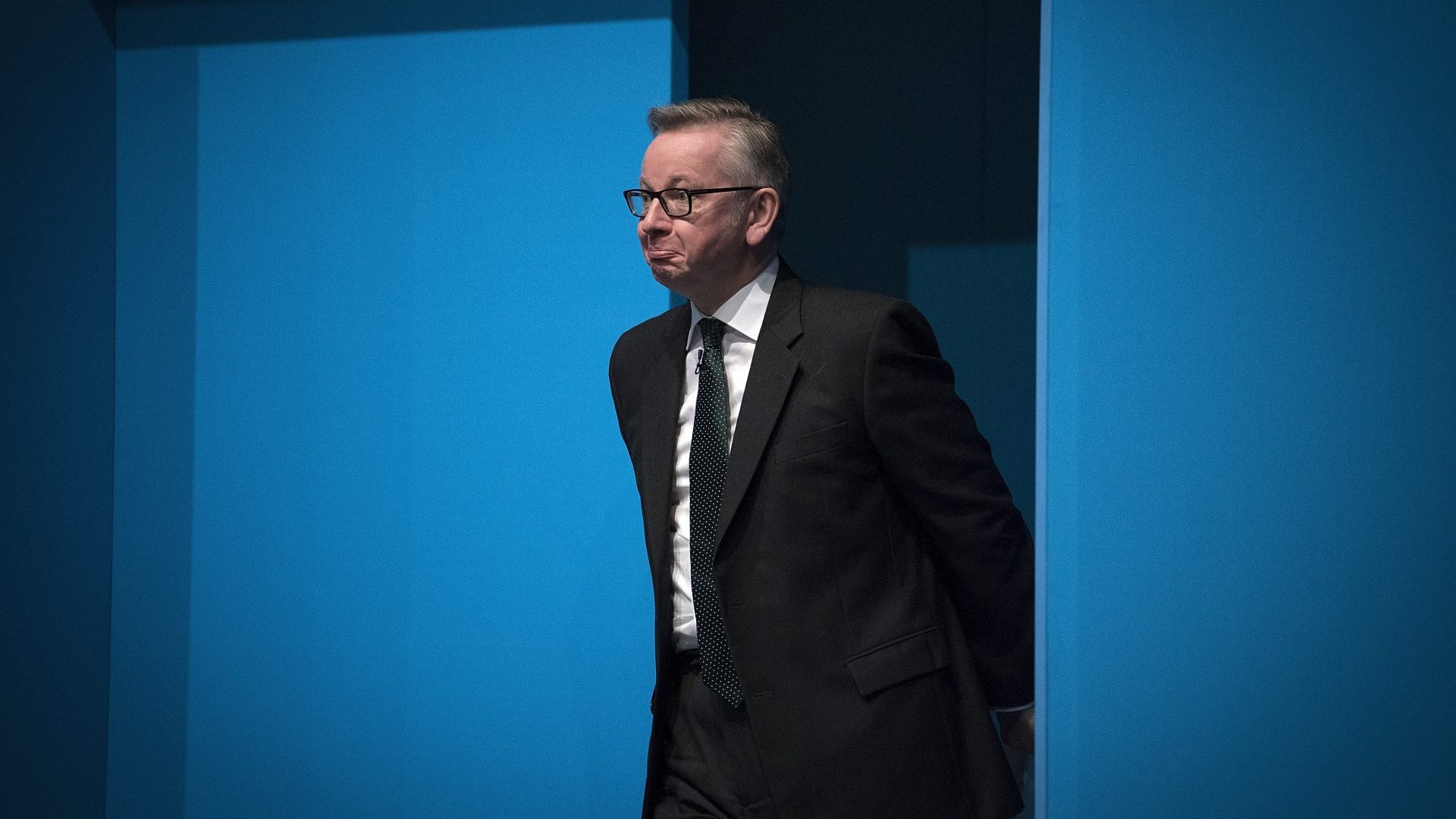No less an expert in editorial malpractice than former Sun editor Kelvin MacKenzie greeted Michael Gove’s appointment as the new man in charge at the Spectator by writing on X: “[He] has three qualities which I feel will make him an inspired choice as Editor. He’s Disloyal, Deceitful and Disgruntled.” When Gove takes up his post on October 8, the magazine’s staff – many still shellshocked that he is replacing the popular Fraser Nelson – will be watching carefully to see how quickly those three Ds are on display.
In May, when Gove announced his retirement from politics, Nelson had written: “When I worked for Gove at the Times, he was tipped as a future editor… [now,] still young at 56, he’ll doubtless be tipped to edit another newspaper or a similar big job.” What Nelson could not have predicted then was that Gove’s next “big job” would be his own at the now Paul Marshall-owned political magazine.
Since Nelson was joking about the potential for the new proprietor to sack him in a Spectator diary column just 10 days earlier, the decision probably came as a surprise to him, but he announced the news with a surfeit of tight-lipped good grace.
“In many ways, Michael is the clear successor,” he wrote. “He’s a first-class journalist who took a detour into politics… His hinterland, love of mischief, intellectual depth, energy, sense of humour and – most importantly – fondness for good writing make him perfect for the job.” As Nelson will keep writing for the Spectator as an associate editor, it makes sense that he’d shower the new boss with superlatives.
Before his 19-year sabbatical as a politician, Gove had spent the whole of his career as a journalist and commentator. Talking to people who have worked with him, whether in the media or politics, the same two adjectives keep coming up: “polite” and “courteous”. But one former colleague at the Times added a useful rejoinder: “It’s a dangerous politeness – as Boris Johnson found out to his cost – because it masks so much.”
Johnson trusted Gove to be his campaign manager in the 2016 Tory Party leadership election, only to be stabbed in the back. Gove announced that he was standing and that Johnson “[couldn’t] provide the leadership or build the team for the task ahead”. Johnsson withdrew and Gove was knocked out in the second round.
His entry into the contest had been prefaced by the accidental leaking of an email from his then-wife, Daily Mail columnist Sarah Vine, who wrote: “…the membership will not have the necessary reassurance to back Boris, neither will [Daily Mail editor Paul] Dacre/ [Rupert] Murdoch who instinctively dislike Boris but trust your ability…” Gove had long been known as one of Murdoch’s favourites. Giving evidence to the Leveson Inquiry in 2012, he called the media baron “one of the most impressive and significant figures of the last 50 years”.
In 2017, when Donald Trump gave his first post-election interview with a foreign news outlet to the Times, Gove conducted it and Murdoch sat in on it, conveniently out of shot in the photos that ran with the piece. Gove resuming his commercial relationship with his former employer, the Times, had been waved through by the Advisory Committee on Business Appointments.
The same year, Private Eye editor Ian Hislop told another Commons committee that Gove’s relationship with the media baron should be investigated. “I think there is a question there about when you’re in office… imagining a future when you might need the generosity of, say, Mr Murdoch to sustain your career and whether that would influence the decisions you’ve made,” he said. No investigaion took place.
After Theresa May’s resignation in 2019, Gove stood again for the Tory leadership and was again knocked out in the early rounds, having to watch Johnson finally secure the prize. He went on to serve in his former friend’s government, before being sacked in July 2022. He had chosen to stab Johnson in the front this time and was rewarded by being kicked out before he could join the cascade of cabinet ministers resigning. No 10 sources at the time called him “a snake” and his reputation for being a plotter was cemented in the public consciousness.
The consensus around Gove’s time in government is that he was effective – regardless of whether his policies were any good – which explains why he was used as a kind of utility player by successive prime ministers, but whether he’ll be as handy as Spectator editor remains highly debatable.
A 2012 Guardian cartoon by Stephen Collins has gained a second life on social media whenever Gove is mentioned. In it, David Cameron faces an alien invasion and Gove persuades him he is the man for the job: “Let me do it… I used to be a journalist for the Times. I wrote two articles about planes, David. I’ve got strong opinions about aliens.” It doesn’t end well.
One former Times colleague remembers a brief period when Gove was the paper’s Saturday editor: “I recall him being full of confidence and reliably wrong. His judgement was awful. We’d listen in horror at afternoon conference as Gove missed the point, as if magnetically attracted to all the wrong stories. We’d then spend the evening quietly fixing the paper.” Another says bluntly: “He was a chump’s idea of a clever man.”
Gove got himself on the right side of his new proprietor back in March when Marshall was named in a House of Commons debate on extremism. A joint investigation by Hope Not Hate and The News Agents podcast had raised questions about tweets liked by Marshall’s Twitter/X account including one that said it was “only a matter of time before civil war starts in Europe” and warned “the native European population is losing patience with fake refugee invaders”. Gove told parliament: “I deprecate the personal attack on Sir Paul, who is a distinguished philanthropist.”
For all the mildness of his tone and that much-mentioned courteousness, Gove himself has been and continues to be an advocate of extreme views. He was a founder member of both the Henry Jackson Society and Policy Exchange think tanks, both of which are on the hard right of Conservatism and have a particular obsession with Muslims.
Gove’s magnum opus on Islam and terrorism, Celsius 7/7, was published in 2006 and memorably described by William Dalrymple in his Sunday Times review as “a confused epic of simplistic incomprehension, riddled with more factual errors and misconceptions than any other text I have come across in two decades of reviewing books on this subject.”
Of course, the most infamous collision of simplistic slogans and extreme underpinnings that Gove involved himself with during his political career was the Brexit campaign. His now infamous quote – “I think the people of this country have had enough of experts with organisations with acronyms saying that they know what is best and getting it consistently wrong” – will still hang around his neck when the time comes to write his obituaries.
He admitted to “moral cowardice” by not being upfront with Cameron about his plans to take a leading role in the Leave campaign, but his Spectator will continue pushing the fantastical narrative of Brexit benefits.
He’s also responsible for promoting one of the most malignant actors of the Leave and Boris Johnson campaign. It was Gove who first brought Dominic Cummings into government during his time at the Department for Education, where the special adviser drafted a eugenics-flavoured thesis claiming genetic makeup was more responsible for academic attainment than educational standards.
Another prominent Brexit backer is joining Gove at the Spectator: Charles Moore, who was given a peerage by Johnson for his tubthumping in the Daily Telegraph, will be the magazine’s new chairman. During his time as editor of the Spectator he brought onboard a young journalist by the name of… Boris Johnson, who went on to succeed him as editor. Moore’s previous hits in the magazine include using his column to wonder if gay marriage would result in a law “[allowing] one to marry one’s dog” and whether Yvette Cooper and Liz Kendall were attractive enough to run for leader of the Labour Party.
For Gove, becoming Spectator editor means finally getting hold of a job that Johnson once had and is rumoured to have coveted again. A former Times colleague says the parallels between the two men go beyond that: “They are not moral or serious people. They are shysters who should never have got anywhere in journalism or politics. That they did is evidence of how debased our trade had become by the end of the last century.”
In some ways, Gove’s purpose won’t differ much from the one fulfilled by Fraser Nelson for the past 15 years. He’ll act as the “respectable”, soft-voiced frontman for a magazine filled with far more obviously extreme voices, but he brings the experience and connections of nearly two decades as a politician with him. It’s not for his proof-reading skills but his understanding of power in Britain that Marshall and his lieutenant, Freddie Sayers, have alighted on Gove.
A hedge fund billionaire doesn’t buy a political magazine as a source of profits, but for the influence it buys. Gove is another piece in that puzzle.
Mic Wright is a reporter and media critic. His Conquest of the Useless blog is on Substack



